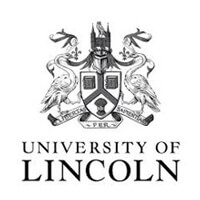fees waived
Sociology, BA (Hons), with industry placement
University of Lincoln, United Kingdom
Subject ranking
UK / Times 76th
UK / Guardian 77th
UK / CUG 91st
Costs
food & rentS$16.8K / year
Entry requirements
Scholarships
Unlimited quantity
Unlimited quantity
Unlimited quantity
Unlimited quantity
Limited quantity
Limited quantity
Information
Code
Code
Intakes
Website (External)
Programmes
Information
Duration
2028
Course summary
As a Sociology student at Lincoln, you are introduced to the study of human social behaviour, which can improve your understanding of how societies are organised, how social identities are constructed and the issues facing some of society’s most marginalised people. On this course, students are encouraged to develop an understanding of the fabric of different societies, groups and political structures. This includes learning about the changing nature and role of the family unit, how technological advances have transformed the way we interact and what subcultures can teach us about mainstream society. The first year of the programme introduces key concepts and influential thinkers from the social sciences. Alongside this theoretical grounding, students can develop their understanding of the value and methodologies of academic research. In year two, students can shape their learning around their own interests by choosing from a range of optional modules including Criminology in the Professions, Comparative Politics and Policy, The Vigilant State: Intelligence and National Security, while further refining their research skills and data analysis techniques. In the third year, there are options to study community and conflict, human rights and the policy process. The flexible nature of the curriculum allows students to pursue subjects of particular interest to them. For the most up to date module information, please visit the course page for this programme on our website. Timetabling arrangements may limit the availability of some optional modules to some students. As the options often reflect staff research interests, they may alter over time due to staff availability. The way students will be assessed on this course will vary for each module. It could include coursework, such as a dissertation or essay, written and practical exams, portfolio development, group work or presentations to name some examples. Throughout this degree, students may receive tuition from professors, senior lecturers, lecturers, researchers, practitioners, visiting experts or technicians, and they may be supported in their learning by other students.Modules
Assessment method
The first year of the programme introduces key concepts and influential thinkers from the social sciences. Alongside this theoretical grounding, students can develop their understanding of the value and methodologies of academic research. In year two, students can shape their learning around their own interests by choosing from a range of optional modules including Criminology in the Professions, Comparative Politics and Policy, The Vigilant State: Intelligence and National Security, while further refining their research skills and data analysis techniques. In the third year, there are options to study community and conflict, human rights and the policy process. The flexible nature of the curriculum allows students to pursue subjects of particular interest to them. For the most up to date module information, please visit the course page for this programme on our website. Timetabling arrangements may limit the availability of some optional modules to some students. As the options often reflect staff research interests, they may alter over time due to staff availability.
A local representative of University of Lincoln in Singapore is available online to assist you with enquiries about this course.

